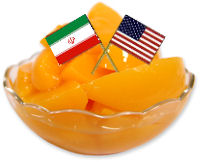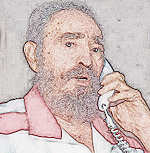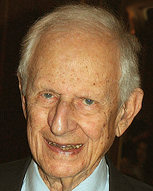 Last week, the United States Court of Appeals for the D.C. Circuit issued its slip opinion in Del Monte Fresh Produce Company v. United States. The appeals court reversed a lower court ruling that had dismissed a case filed by Del Monte against the Department of Treasury’s Office of Foreign Assets Control (“OFAC”) alleging that OFAC was taking too long to process a license application Del Monte had filed to export agricultural commodities to Iran.
Last week, the United States Court of Appeals for the D.C. Circuit issued its slip opinion in Del Monte Fresh Produce Company v. United States. The appeals court reversed a lower court ruling that had dismissed a case filed by Del Monte against the Department of Treasury’s Office of Foreign Assets Control (“OFAC”) alleging that OFAC was taking too long to process a license application Del Monte had filed to export agricultural commodities to Iran.
The Trade Sanctions Reform and Export Enhancement Act of 2000 (“TSRAâ€), 22 U.S.C. §§ 7201-7211, authorizes exports of agricultural products, medicine and medical devices to sanctioned countries such as Iran. Section 906 of TSRA provided that the licenses for exports to Iran were to be no more restrictive than license exceptions for agricultural products administered by the Deparment of Commerce. Pursuant to that section, OFAC published an interim rule that followed Commerce’s “nine-day” rule and which provided, in effect that licenses to Iran would be granted if no objections had been received from the State Department within nine days of the referral of the application to State and if the application was otherwise in conformity with OFAC’s rules. In March 2007, OFAC issued a policy statement that it would no longer comply with the 9-day rule.
Del Monte’s application to export agricultural products to Iran was filed with OFAC on August 8, 2007, and referred by OFAC to State on August 17. On September 13, State replied that it had no objection. After the OFAC Help Desk advised Del Monte on November 27 that the application was still pending, Del Monte filed suit the following day, November 28, in federal district court. On November 29, Del Monte filed a motion for preliminary injunction, the court scheduled a status conference and OFAC granted Del Monte’s license, which it appears had been signed on November 23, i.e., before Del Monte had filed suit. Because OFAC had issued the license, the District Court dismissed the complaint and the motion for preliminary injunction as moot.
In the opinion released by the Court of Appeals, the court ruled that the district court had jurisdiction over the otherwise moot claim under the exception for claims “capable of repetition but evading review.” As a result, the decision is instructive more on arcane issues of federal jurisdiction than it is on anything else.
But since the case was remanded for further proceedings before the district court, the district court will now be forced to confront several issues of immense interest to exporters. First, how long does OFAC have to act on a TSRA application under the terms of section 906 of TSRA? Must the agency act within 9 days of referral to State if State raises no objections and the license is otherwise grantable? Or could the agency, by its action in March 2007, defer action on applications for a much longer period? If the District Court reinstates the nine day rule, can OFAC effectively avoid it by waiting for long periods before referring the license application to State?

 Posted by
Posted by  Category:
Category: 

 A
A  A helpful reader emailed me earlier today that some guy was so impressed with this blog that he decided to start his
A helpful reader emailed me earlier today that some guy was so impressed with this blog that he decided to start his  OFAC released today its monthly civil penalties
OFAC released today its monthly civil penalties  Nonagenarian New York prosecutor, Robert Morgenthau, still keeps trying to grab the spotlight after all these years, even if it means wasting immense amounts of New York state funds on a criminal prosecution he can’t win and which should have been brought, if at all, by federal prosecutors. I’m talking about his
Nonagenarian New York prosecutor, Robert Morgenthau, still keeps trying to grab the spotlight after all these years, even if it means wasting immense amounts of New York state funds on a criminal prosecution he can’t win and which should have been brought, if at all, by federal prosecutors. I’m talking about his 

